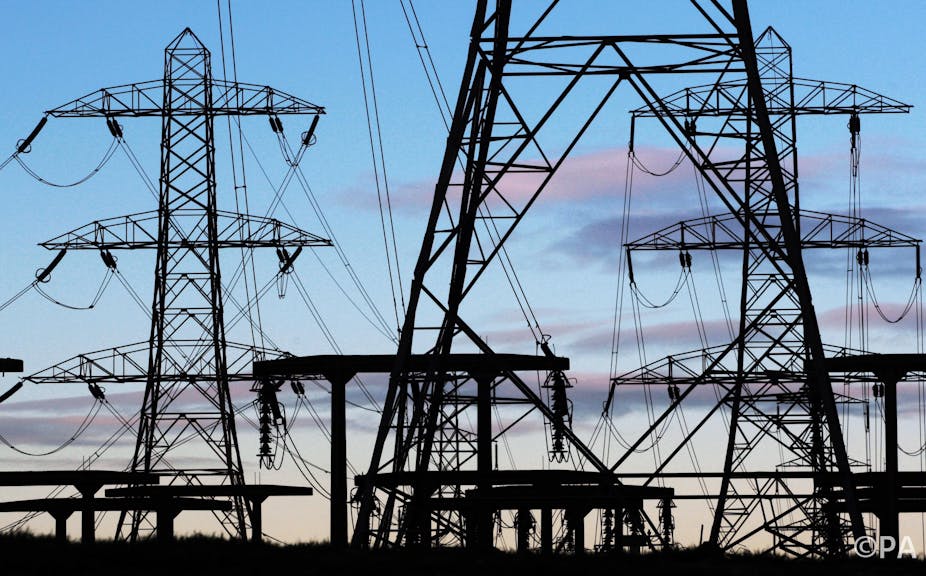With high energy prices all anyone can talk about this winter, Ofgem’s interim chief Andrew Wright appeared before MPs today to defend the regulator’s performance. Predictably, he was met with some hostile questions about how energy company profits have jumped 77%, and whether Ofgem is doing enough to protect consumers. While he defended Ofgem’s overall approach, he conceded that more might need to be done to rebuild public trust in the energy market.
The government and Ofgem have been discussing market reform for some time. Ofgem started its latest review of retail markets in late 2010. New measures will include simplified tariffs, implemented at the behest of the government, and measures to make switching between suppliers easier. The government has also announced an annual review of competition in the wholesale market. At least one of the Big Six energy suppliers, E.On UK, has openly welcomed such a review. The question is whether, given that some reforms are already underway, calls for more intervention are warranted. Furthermore, would they have an impact on household bills?
On balance, there are good reasons for pushing the Big Six energy suppliers to be more transparent. They should be required to provide more information to Ofgem about their trading activities and the terms of the wholesale gas supply contracts they hold. This would help to resolve a discrepancy: the Big Six companies claim that rising wholesale gas prices are pushing up bills, while Ofgem’s analysis found wholesale costs have risen by just 1.7% over the past year. One independent energy supplier, Ovo Energy, supported Ofgem’s view during a hearing of the House of Commons energy committee last month. Their managing director [told the committee](that gave evidence](http://www.bbc.co.uk/news/business-24728992) that “the most expensive price we’ve paid for wholesale gas in the last four years was in May 2011 and since then it’s been [less]”.
Market reform, second time lucky
Greater separation between the generation and retail businesses owned by the Big Six also merits serious attention. These companies supply significant amounts of energy to themselves, and independent electricity generators often complain that they cannot get fair prices for the power they produce. This has been an important issue for the government’s proposals designed to finance new, low carbon power stations. But it has received little attention during the reform process.
As is often the case, we have been here before. Under the power market that operated in the UK until 2001, all electricity had to be traded. Furthermore, there were rules in place that prevented the kind of vertical integration and the advantages it confers that we have now.
In hindsight, the previous regulatory regime starts to look more attractive than it once did – particularly now that there is a much greater need for new investment. The Big Six cannot deliver the amount of investment required for the UK’s low carbon transition on their own. It is therefore important to have market arrangements that actively encourage investment from independents too.
Playing the long game
Of course, market reforms can only be a partial solution to rising bills. Longer-term strategies are needed to ensure that energy policy goals can be met affordably – providing incentives to move away from fossil fuels, and improving energy efficiency.
The so-called ‘green taxes’ that are added to energy bills to pay for these policies have risen over the last few years. But they still only account for 9% of a typical household dual-fuel bill. They have not been the main cause of price increases over the past few years. And in any case, Britain still has some of the lowest household energy prices in the EU.

It is worth remembering that the purpose of these policies is to support new technologies, to provide incentives to shift away from fossil fuels and – most important in the current context – to improve the energy efficiency of our homes. Policies in the latter category have come under particular scrutiny as utilities have projected large (and in some cases inexplicable) increases in the cost of implementing the new Energy Company Obligation. Such scrutiny is welcome, but this should not detract from the important role these policies play.
Ideally, these costs should not be passed on to consumers through their energy bills. It would be more progressive to fund them from general taxation, which would reduce the burden felt by those on low incomes. Not surprisingly, the energy companies have become increasingly enthusiastic about the idea.
But there is one big risk. The UK economy is still struggling to emerge from the financial crisis and recession, and while there are signs of stronger economic growth there is a long way to go. Austerity will be with us for many years to come. If programmes to support cleaner energy or to improve energy efficiency are shifted to taxation, what will stop a future Chancellor of the Exchequer from cutting them at short notice? It would be ironic if the rows about energy bills simply led to the downgrading or the demise of policies that are designed to mitigate climate change and to reduce our exposure to high fossil fuel prices.

